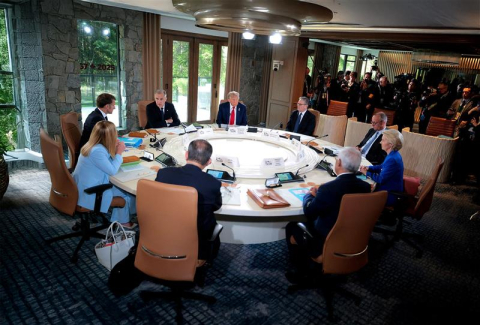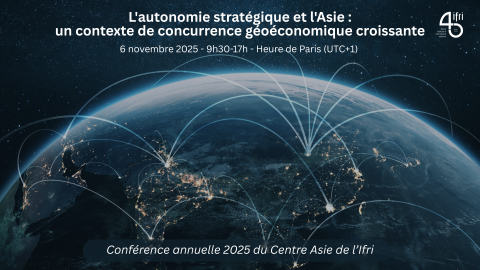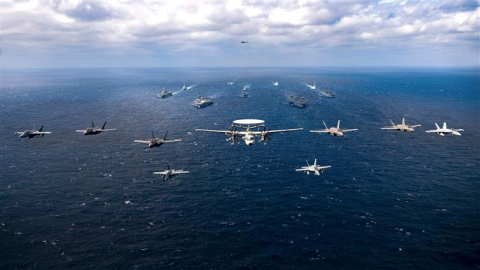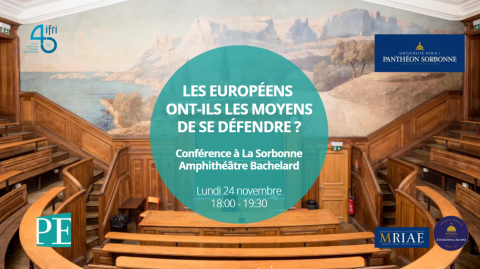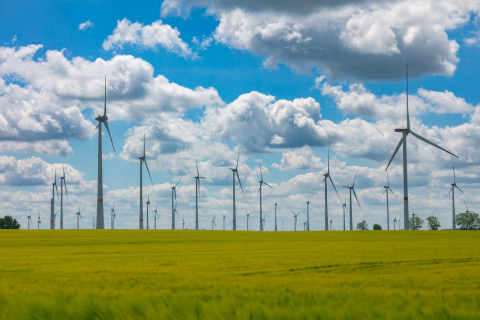
Informations pratiques
Thématiques et régions
Centres et programmes liés
Ceci est un événement réservé.
En savoir plus sur nos programmes de soutienAgenda
1:30- 2:00 pm : Introduction
1:30 pm : Octavi Quintana, Director, European Commission DG RTD and Domenico Rossetti, European Commission, DG RTD
1:45pm : Philip Andrews-Speed, POLINARES Scientific Coordinator, University of Westminster
Grappling with natural resources complexity: The aims, structure and approach of POLINARES
2:00-3:30 : Broadening the perspective on access to oil, gas and minerals: Polinares results
Moderator: Philip Andrews-Speed, University of Westminster
Peter Buchholz, Head of Unit Mineral Economics, BGR
Future mineral availability: tensions and gaps
Coby van der Linde, Director, CIEP
Current challenges and opportunities in energy and uncertain futures
Peter Styles, University of Dundee
Policy choices for better access to oil, gas and minerals
3:30 - 4:00 Coffee break
4:00-5:15 pm : From projects to policies: fostering the debate among institutions on access to resources
Moderator: Peter Styles, University of Dundee
Joao Marques de Almeida, European Commission, BEPA
Resources, global geopolitics and the EU
Michael Rühle, Head, Energy Security Section, Emerging Security Challenges Division, NATO
Broadening NATO's Strategic Horizon: Understanding the key drivers of international security
Maïté Jaureguy-Naudin, Director of the Center for Energy, IFRI
Internalizing natural resources challenges into European policies
Questions & Answers
5:15 pm Conclusions
Philip Andrews-Speed, University of Westminster
Preparing for an uncertain future: What we have learnt from POLINARES
5:45 pm : End of the meeting and drinks
The EU and other regions of the world face ever growing challenges to secure supplies of energy and mineral raw materials which have the potential to threaten economic stability and competiveness. The origin of these challenges can be traced, in part, from the worldwide surge of economic growth in the first years of this century and to the consequent rise of resource prices. But other factors are also playing an important role. These include: the changing balance of global economic and political power which threatens to undermine the influence of traditional actors; the return of state capitalism which weakens the effective operation of markets for commodities and investment; rapid technological advances which can cause sudden surges in demand for new raw materials; and shifts in the scale of economic rent along commodity value chains.
This conference, co-organised with the French Institute of International Relations (Ifri), presents selected highlights from a multi-disciplinary research project, “POLINARES”, that is funded by the EU Framework Programme. The aim of the POLINARES project has been to identify the main challenges facing the EU and the rest of the world in securing access to oil, gas and minerals to the year 2040, and to recommend policy approaches to address these challenges. In addition to presenting the main findings of this project, the conference will also include complementary perspectives given by invited speakers from the Bureau of European Policy Advisors (BEPA), the North Atlantic Treaty Organisation (NATO) and Ifri.
For more information on the project, see www.polinares.eu
_____________________________________
[1] POLINARES is funded by the European Union Seventh Framework Programme (FP7/2007-2013) under grant agreement n°244516, funding scheme FP7 Socio-economic Sciences and the Humanities, topic SSH-2009-4.1.1 ‘Competition and collaboration in access to oil, gas and mineral resources".
Sujets liés
Autres événements
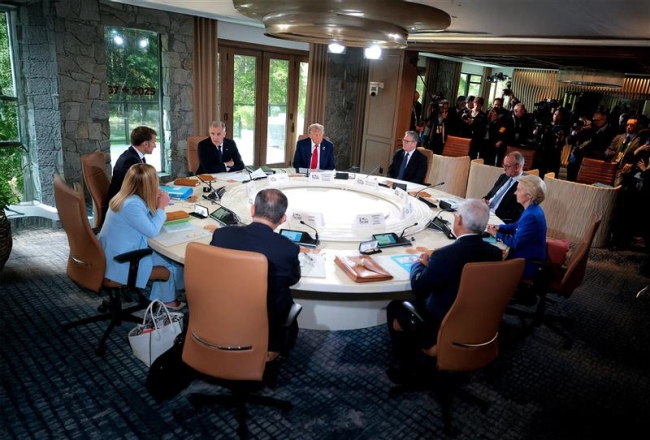
Quelles perspectives pour la politique étrangère américaine ?
Droits de douane, retrait de l’accord de Paris et de l’OMS, plan de paix à Gaza… Le second mandat de Donald Trump a déjà profondément bouleversé l’ordre mondial, redéfinissant les rapports entre les États-Unis et leurs partenaires, et notamment les relations transatlantiques.
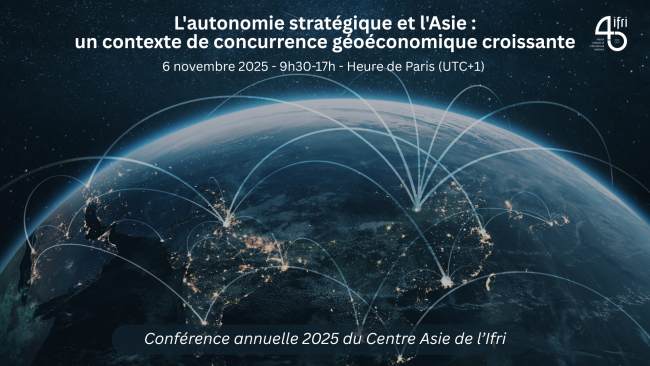
L'autonomie stratégique et l'Asie : un contexte de concurrence géoéconomique croissante
Dans un contexte d'incertitude stratégique et géopolitique croissante, l'Europe est confrontée à la notion d'autonomie stratégique. Pour les partenaires européens en Asie, ce concept prend également de plus en plus d'importance à l'heure où le monde entre dans une ère de transformation structurelle.
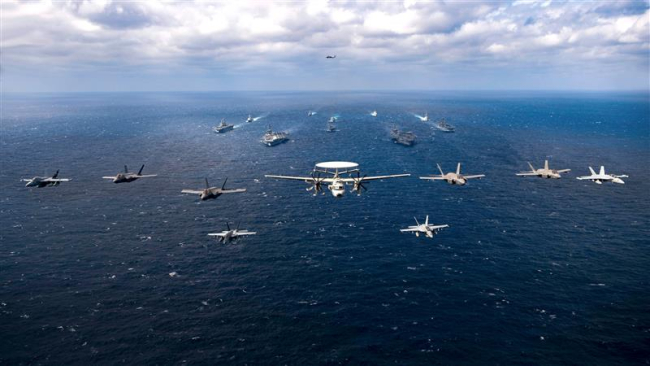
Naviguer au cœur des tensions du Détroit de Taiwan : perspectives du Japon, des Philippines et de la France
Alors que les tensions s’aggravent dans le détroit de Taïwan et que les débats s’intensifient sur les risques de frictions hybrides pouvant dégénérer en conflit armé dans les années à venir, les pays voisins se préparent.





